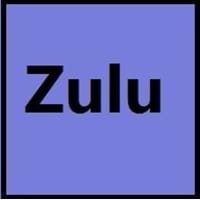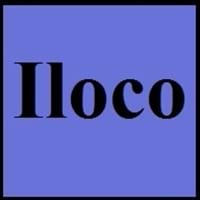Zulu and Ilocano
Countries
South Africa
Philippines
National Language
South Africa
Philippines
Second Language
Botswana, Lesotho, Malawi, Mozambique, Swaziland, Zimbabwe
Not spoken in any of the countries
Speaking Continents
Africa
Asia
Minority Language
Not spoken in any of the countries
Not spoken in any of the countries
Regulated By
Pan South African Language Board
Commission on the Filipino Language
Interesting Facts
- The meaning of word "Zulu" means "Sky"and Zulu was the name of the ancestor who founded the Zulu royal line in about 1670.
- Zulu language has many loanwords borrowed from Afrikaans and English Languages.
- Ilocano was originally written with Baybayin syllabary, then gradually it was replaced by Latin alphabet.
- Northwest Luzon is the original Ilocano homeland.
Similar To
Xhosa Language
Tagalog, Indonesian and Malaysian Languages
Derived From
Not Available
Not Available
Alphabets in
Zulu-Alphabets.jpg#200
Ilocano-Alphabets.jpg#200
Scripts
Latin
Ilokano Braille, Latin
Writing Direction
Not Available
Not Available
Time Taken to Learn
Not Available
Thank You
Ngiyabonga
Agyamanak
How Are You?
unjani
Kumusta?
Good Night
okuhle ebusuku
Naimbag a rabii
Good Evening
okuhle kusihlwa
Naimbag a sardam
Good Afternoon
okuhle ntambama
Naimbag a malem
Good Morning
okuhle ekuseni
Naimbag a bigat
Please
Ngiyacela
Not available
Sorry
Ngiyaxolisa
Agpakawanak
I Love You
Ngiyakuthanda wena
Ayayatenka
Excuse Me
Uxolo
Maawan-dayawen
Where They Speak
Gabon, South Africa
Philippines
How Many People Speak
Not Available
Dialect 2
central KwaZulu-Natal Zulu
Bontoc
Where They Speak
Georgia, South Africa
Philippines
How Many People Speak
Not Available
Dialect 3
Ndebele
Not present
Where They Speak
Zimbabwe
Not present
Second Language Speakers
Not Available
Native Name
isiZulu
ilokano
Alternative Names
Isizulu, Zunda
Ilokano, Iloko
French Name
zoulou
ilocano
German Name
Zulu-Sprache
Ilokano-Sprache
Pronunciation
Not Available
Not Available
Ethnicity
Zulu people
Ilocano people
Language Family
Niger-Congo Family
Austronesian Family
Subgroup
Benue-Congo
Not Available
Branch
Beatu
Not Available
Early Forms
urban Zulu
No early forms
Standard Forms
Deep Zulu
Modern Ilocano
Signed Forms
Not Available
Not Available
Scope
Individual
Individual
ISO 639 1
zu
No data available
ISO 639 6
Not Available
Not Available
Glottocode
zulu1248
ilok1237
Linguasphere
99-AUT-fg
31-CBA-a
Language Type
Living
Living
Language Linguistic Typology
Subject-Verb-Object
Not Available
Language Morphological Typology
Not Available
Not Available
All Zulu and Ilocano Dialects
Most languages have dialects where each dialect differ from other dialect with respect to grammar and vocabulary. Here you will get to know all Zulu and Ilocano dialects. Various dialects of Zulu and Ilocano language differ in their pronunciations and words. Dialects of Zulu are spoken in different Zulu Speaking Countries whereas Ilocano Dialects are spoken in different Ilocano speaking countries. Also the number of people speaking Zulu vs Ilocano Dialects varies from few thousands to many millions. Some of the Zulu dialects include: Qwabe, central KwaZulu-Natal Zulu. Ilocano dialects include: Balangao , Bontoc. Also learn about dialects in South American Languages and North American Languages.
Zulu and Ilocano Speaking population
Zulu and Ilocano speaking population is one of the factors based on which Zulu and Ilocano languages can be compared. The total count of Zulu and Ilocano Speaking population in percentage is also given. The percentage of people speaking Zulu language is 0.16 % whereas the percentage of people speaking Ilocano language is 0.14 %. When we compare the speaking population of any two languages we get to know which of two languages is more popular. Find more details about how many people speak Zulu and Ilocano on Zulu vs Ilocano where you will get native speakers, speaking population in percentage and native names.
Zulu and Ilocano Language Codes
Zulu and Ilocano language codes are used in those applications where using language names are tedious. Zulu and Ilocano Language Codes include all the international language codes, glottocodes and linguasphere.





